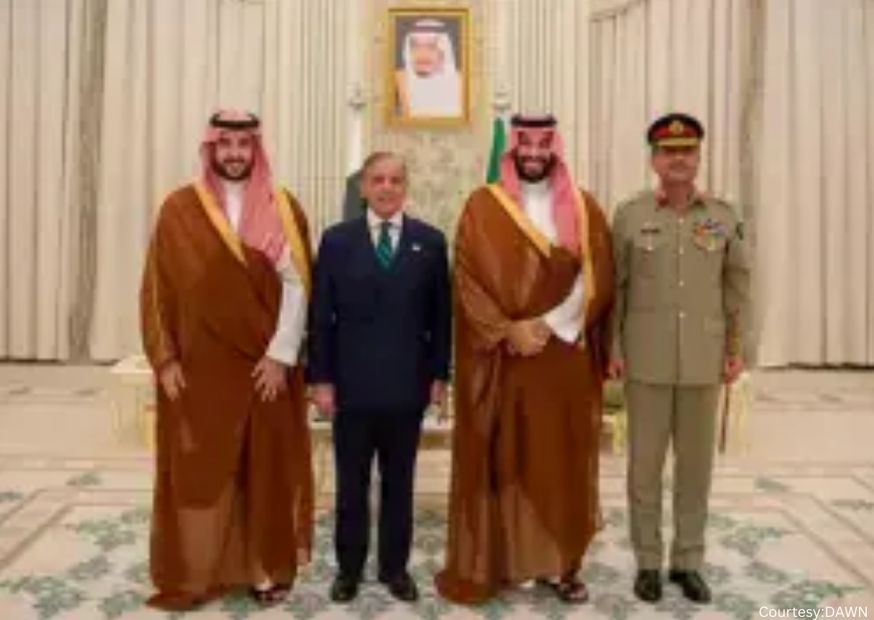ISLAMABAD: Amid growing economic pressures, Pakistan finds itself walking a tightrope between crippling debt obligations and a flicker of financial relief, as a new defence pact with Saudi Arabia raises prospects of fresh investments and vital economic support.
The deal is expected to unlock portions of Riyadh’s previously pledged $5 billion investment package, targeting energy, mining and infrastructure — sectors critical for reducing import dependence and strengthening Pakistan’s shaky economic foundations. Saudi Arabia has already played a key role as a financial backstop, offering $3 billion in central bank deposits and $1.2 billion in deferred oil payments, steps that helped Islamabad narrowly avoid default in the recent past.
While the agreement signals enhanced bilateral cooperation, the underlying challenges remain daunting. Pakistan’s public debt has soared to an alarming Rs 88.126 trillion (approx. $312bn), with external liabilities alone standing at Rs 23.417 trillion ($83bn). Nearly half of the federal budget — about 47% of total expenditures — is now consumed by interest payments, leaving little fiscal space for development, education, health or infrastructure spending.
This year alone, external debt servicing is projected at $26 billion, a figure surpassing the country’s available forex reserves of under $20 billion. Heavy reliance on domestic borrowing at steep costs has also squeezed private sector credit, dampening investment and job creation while deepening the cycle of economic fragility.
Officials have highlighted some positive signals: a modest reduction in the debt-to-GDP ratio, a narrowing fiscal deficit, and what is being hailed as a “historic” primary surplus of 2.4% of GDP. Yet analysts remain cautious, warning that these improvements are fragile and heavily reliant on bailouts, deferred payments, and politically sensitive tax exemptions that continue to erode revenue streams.
Economists argue that while Saudi support may provide breathing room, only tough structural reforms — widening the tax net, ending subsidies and exemptions, reforming state-owned enterprises, and ensuring timely foreign investment — can put Pakistan on a sustainable path. Until then, relief from allies will remain a temporary fix to a deeper financial malaise.
This story has been reported by PakTribune. All rights reserved.



